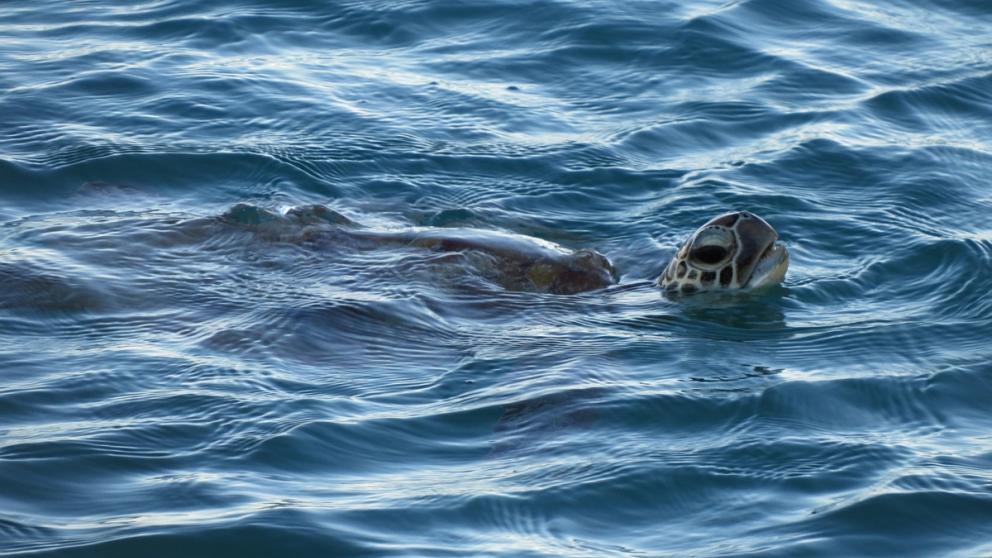Regional Alliances for the Sustainable Use of the Oceans
07.06.2017

On June 6, researchers from the Institute for Advanced Sustainability Studies (IASS) and their colleagues from partner institutes presented a new report at the first ever United Nations’ Ocean Conference in New York. The report examines the role of regional marine conservation in the implementation of the global sustainable development goals for oceans. With reference to case studies, it shows how coastal states can protect marine ecosystems more effectively and use them sustainably by forming regional alliances. Together with international decision-makers and marine conservation experts, the researchers also submitted recommendations for the sustainable use of the oceans, which will feed into the UN negotiations.
The oceans are part of a global commons. After all, neither fish swarms nor marine litter stay within national borders. Coastal states can only protect and use marine ecosystems sustainably when they work together to develop solutions to that end. But how does regional cooperation work in practice? And what could be improved in order to implement the UN sustainable development goals for marine conservation? This was the focus of the event “Oceans in the Agenda 2030 – the Role of Regional Governance”, which took place during the UN Ocean Conference in New York on 6 June.
Swedish Environment Minister Karolina Skog opened the high-level event at Germany’s Permanent Mission to the United Nations in New York together with Erik Solheim, Executive Director of the UN Environment Programme, and Gunther Adler, State Secretary at the German Ministry for the Environment. Organised by Germany, Sweden, UN Environment, the IASS, the Institute for Sustainable Development and International Relations (IDDRI), and the Think Tank for Sustainability (TMG), it brought together ministers and other high-ranking state officials as well as scientists and NGOs.
During the event Sebastian Unger (IASS) and Julien Rochette (IDDRI) presented the new report “Partnering for a Sustainable Ocean – The Role of Regional Ocean Governance in Implementing Sustainable Development Goal 14”, which was written in cooperation with TMG and UN Environment and funded by the German Ministry for Economic Cooperation and Development. In the report, a team of seven researchers analyses opportunities and challenges for regional alliances in the implementation of sustainable development goal 14 for marine conservation.
The ten case studies of regional cooperation examined in the report include an initiative by six Asian island states to protect coral reefs as well as an alliance of eight Eastern African countries to combat illegal fishing. But the researchers also looked closer to home and assessed the European Union’s strategy for the Baltic Sea region. “The study was able to show just how important regional cooperation is for implementing the sustainable development goals for oceans,” explained Sebastian Unger, who heads the Ocean Governance project at the IASS, “The oceans cover over 70 per cent of the Earth’s surface, and without cross-border and cross-sectoral cooperation, we will not achieve the sustainable development goals.”
Julien Rochette, Director of the Ocean Agenda at IDDRI, added: “In order to bypass institutional and legal barriers to marine conservation, regional initiatives require much greater support. And we should also encourage regions to share the knowledge gained from their different experiences of cooperation in this area.” Former German environment minister and TMG founder Klaus Töpfer is also convinced of the need for action: “It’s high time that we shared our knowledge about how the oceans can be used sustainably and worked in partnership to protect this global commons. This study and the recommendations made to the UN Ocean Conference are the first steps in that direction.”
IASS researchers now want to focus their efforts on developing solutions that are tailor-made for specific marine regions under the umbrella of the Partnership for Regional Ocean Governance (PROG) initiated by the IASS and its partners. With this in mind, they also presented the “STRONG High Seas” project in New York, together with the German Ministry for the Environment, UN Environment, and the Comisión Permanente del Pacífico Sur (CPPS). Launched by the International Climate Initiative, this project will run in the South-East Atlantic and the South-East Pacific from 2017 to 2022.
“With this project we want to develop regional approaches for the conservation and sustainable use of biodiversity on the high seas, because these areas are being used more and more intensively and are not adequately protected under existing agreements,” explained IASS marine scientist Carole Durussel, who is in charge of the project, “Our goal is a collective learning process that strengthens regional alliances while also advancing the sustainable use of the oceans at the global level.” It is hoped that the insights gained from the “STRONG High Seas” project will also feed into future negotiations for a new international agreement on the conservation of biodiversity in marine areas beyond national jurisdiction.
Further information:
- Research programme Ocean Governance